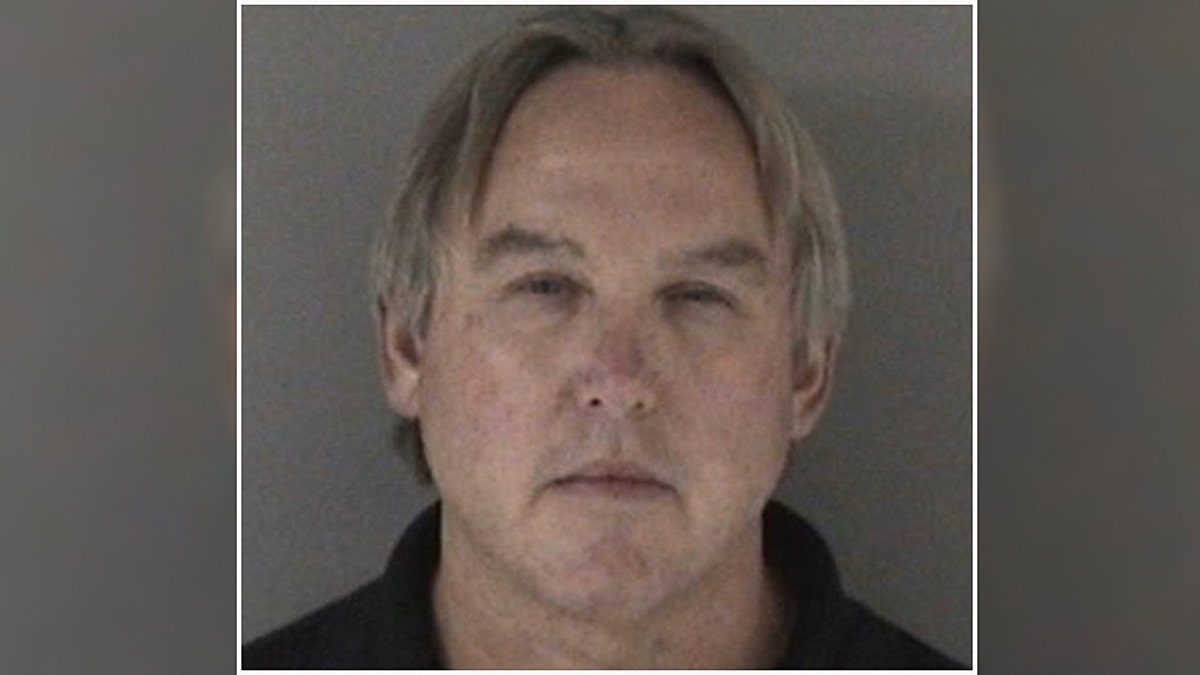Suspects arrested, released under California zero cash bail
Hundreds of California inmates released amid the coronavirus pandemic; Alameda County Sheriff's Sgt. Ray Kelly weighs in.
Get all the latest news on coronavirus and more delivered daily to your inbox. Sign up here.
Authorities in Northern California are blasting the decision by a local judge to release a 61-year-old suspect in a pair of cold case rapes over concerns about the spread of coronavirus at an area jail.
Gregory Paul Vien, 61, was charged last November in connection with two separate sexual assaults from 1997 after police linked DNA from the crime scenes to that of a sample collected from a Baskin-Robbins ice cream spoon.
But on Thursday, the Union City Police Department said Alameda County Superior Court Judge Thomas Reardon released Vien from jail over alleged COVID-19 exposure concerns.
CALIFORNIA MAN ARRESTED 3 TIMES IN A DAY, GIVEN CITATIONS AND RELEASED DUE CORONAVIRUS RESTRICTIONS
"In this case, Judge Thomas Reardon reduced the bail for suspect Gregory Vien from $2.5 million dollars to $0, effectively releasing the suspected serial rapist back into the community," police said in a news release.
Alameda County District Attorney's Office spokeswomen Teresa Drenick told KTVU on Friday that prosecutors "vehemently argued" against his release and the lowering of bail.

Gregory Paul Vien, 61, who was charged last November in connection with two separate sexual assaults from 1997, was released on Thursday from jail over alleged coronavirus exposure concerns. (Union City Police Department)
"It really is outrageous that we are seeing a man charged with serious, violent sexual assaults released from custody at this point in time," she said.
Instead of sitting in jail, Vien is now on house arrest on an ankle monitor.
"This is not normal, this is not acceptable," Alameda County Sheriff spokesman Sgt. Ray Kelly told KTVU.
The suspect's release was based on the COVID-19 concerns, according to officials, and not the zero-bail order by the California Judicial Council for misdemeanor and non-violent crime suspects.
The zero-cash bail emergency mandate in California, which has led to reduced prison populations to reduce the spread of COVID-19, is continuing to be a challenge for law enforcement as alleged criminals are released back into the public.
Last week, a man in Southern California was arrested three times over the course of 12 hours -- including for allegedly leading officers on a pursuit -- and was only given citations and released each time due to the statewide zero-bail policy.
Vien's attorney, Melissa Adams, said in a statement to KTVU that due to her client's "unique personal and medical circumstances," she argued his bail should be reviewed in light of the COVID-19 pandemic.
"This was pursuant to the long standing rule that bail may be reviewed if there is a change in circumstances when the bail was set," she said Friday. "In my opinion, COVID-19 is such a change."
According to prosecutors, a woman walking to a Bay Area Rapid Transit station in Union City after work on May 6, 1997, was attacked by an unidentified man who “dragged her to a secluded area” before he sexually assaulted her. Several months later, on Sept. 7, a second woman was sexually assaulted while on a walk near Livermore High School.
Police were able to recover DNA from both crime scenes that were “found to be a match to each other.” The samples were uploaded to the national DNA database to no avail. More than 22 years later, investigators from the Livermore Police Department were able to get a lead using a genetic genealogical search tool which led them to Vien.
Police later collected “several items” that had been thrown in the garbage, including a “Baskin-Robbins spoon” that Vien used to eat ice cream. On Aug. 28, the lab turned back a positive match between Vien’s DNA and the sample taken from both crime scenes.
CLICK HERE FOR FULL CORONAVIRUS COVERAGE
The Union City Police Department said Thursday the charges against Vien have not been dropped, and he will have to face time "at some point'
"The Union City Police Department wanted to share this information with our community and let you know that we, like Livermore PD and the District Attorney's Office, do not support this decision and feel it places our communities at greater risk," police said.
The release has also outraged local residents.
“It’s crazy,” Livermore resident Carmen Naval told KPIX-TV. “I don’t know why it took so long for them to even find him, and then let him go. I wouldn’t.”
CLICK HERE FOR THE FOX NEWS APP
As the coronavirus pandemic has worsened, concern shifted to crowded prisons in some communities, where inmates not only live in close proximity to one another but share laundries, baths, and communal eating areas.
The United States has 2.3 million inmates in about 5,000 jails and prisons across the country -- believed to be the largest prison population in the world. According to the Bureau of Justice, nearly 200,000 people 55 and older are behind bars.
Officials in California, for instance, responded by releasing thousands of non-violent inmates to open up space in facilities to prevent the spread of the virus. As of mid-April, over 16,000 inmates had been released nationwide, due to the virus.
CLICK HERE FOR THE FOX NEWS APP
There were 54,903 cases of COVID-19 in California as of Monday with at least 2,214 deaths, according to Johns Hopkins University.
Fox News' Paulina Dedaj and Nick Givas contributed to this report.





